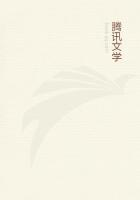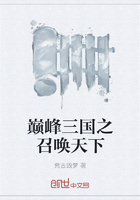About 11 o'clock on the day following this conversation, Godfrey found himself standing on the platform in the big station of Lucerne.
"How are you going to get to Kleindorf?" Miss Ogilvy asked of him.
"It's five miles away by the road. I think you had better come to my house and have some /déjeuner/. Afterwards I will send you there in the carriage."
As she spoke a tall gaunt man in ultra-clerical attire, with a very large hooked nose and wearing a pair of blue spectacles, came shuffling towards them.
"Madame is Engleesh?" he said, peering at her through the blue glasses. "Oh! it is easy to know it, though I am so blind. Has Madame by chance seen a leetle, leetle Engleesh boy, who should arrive out of this train? I look everywhere and I cannot find him, and the conducteur, he says he not there. No leetle boy in the second class.
His name it is Godfrey, the son of an English pasteur, a man who fear God in the right way."
There was something so absurd in the old gentleman's appearance and method of address, that Miss Ogilvy, who had a sense of humour, was obliged to turn away to hide her mirth. Recovering, she answered:
"I think this is your little boy, Monsieur le Pasteur," and she indicated the tall and handsome Godfrey, who stood gazing at his future instructor open-mouthed. Whoever he had met in his visions, the Pasteur Boiset was not one of them. Never, asleep or waking, had he seen anyone in the least like him.
The clergyman peered at Godfrey, studying him from head to foot.
"Mon Dieu!" he exclaimed, "I understood he was quite, quite leetle, not a big young man who will eat much and want many things. Well, he will be /bon compagnon/ for Juliette, and Madame too, she like the big better than the leetle. /Il est beau et il a l'air intelligent, n'est ce pas, Madame?/" he added confidentially.
"/Bien beau et très intelligent/," she replied, observing that Godfrey was engaged in retrieving his overcoat which he had left in the carriage. Then she explained that she had become friendly with this young gentleman, and hoped that he would be allowed to visit her whenever he wished. Also she gave her name and address.
"Oh! yes, Mademoiselle Ogilvee, the rich English lady who live in the fine house. I have heard of her. /Mais voyons!/ Mademoiselle is not Catholic, is she, for I promise to protect this lad from that red wolf?"
"No, Monsieur, fear nothing. Whatever I am, I am not Catholic,"
(though, perhaps, if you knew all, you would think me something much more dangerous, she added to herself.)
Then they said goodbye.
"I say, Miss Ogilvy," exclaimed Godfrey, blushing, "you've been awfully kind to me. If it hadn't been for you I should have missed that train and never heard the last of it. Also, I should have had to go hungry from London here, since I promised my father not to buy anything on the journey, and you know I forgot the basket." (By the way, being addressed, it arrived three days afterwards, a mass of corruption, with six francs to pay on it, and many papers to be signed.)
"Not at all, Godfrey, it was delightful to have you as a companion--@@and a friend," she added meaningly. "You will come and see me, won't you?"
"Yes, of course, if I can. But meanwhile, please wait a minute," and he pulled out his purse.
"What on earth are you going to do, Godfrey? I don't want your card."
"Card! I haven't got a card. I am going to make you a present."
"Make me a present?" gasped Miss Ogilvy, a vague vision of half-crowns flashing before her mind.
"Yes, it is rather a curious thing. It was found round the neck-bone of an old knight, whose remains they threw out of the Abbey Church when they put in the heating apparatus. I saw it there, and the ***ton gave it to me when he discovered that it was only stone. You will see it has a hole in it, so he must have worn it as an ornament. The grave he lay in was that of a Crusader, for the legs are crossed upon his brass, although his name has gone. Oh! here it is," and he produced an oblong piece of black graphite or some such stone, covered with mystical engravings.
She seized the object, and examined it eagerly.
"Why, it is a talisman," she said, "Gnostic, I should think, for there is the cock upon it, and a lot that I can't read, probably a magic formula. No doubt the old Crusader got it in the East, perhaps as a gift from some Saracen in whose family it had descended. Oh! my dear boy, I do thank you. You could not have made me a present that I should value more."
"I am so glad," said Godfrey.
"Yes, but I am ashamed to take it from you. Well, I'll leave it back to you one day."
"Leave it back! Then you must die before me, and why should you do that? You are quite young."
"Because I shall," she answered with a sad little smile. "I look stronger than I am. Meanwhile you will come and tell me all about this talisman."
"I have told you all I know, Miss Ogilvy."
"Do you think so? I don't. But look, your old pasteur is calling that the diligence is coming. Good-bye. I'll send the carriage for you next Sunday in time for /déjeuner/."
A few minutes later Godfrey found himself packed in a rumbling old diligence amidst a number of peasant women with baskets. Also there was a Roman Catholic priest who sat opposite to the Pasteur. For a while these two eyed each other with evident animosity, just like a pair of rival dogs, Godfrey thought to himself.














